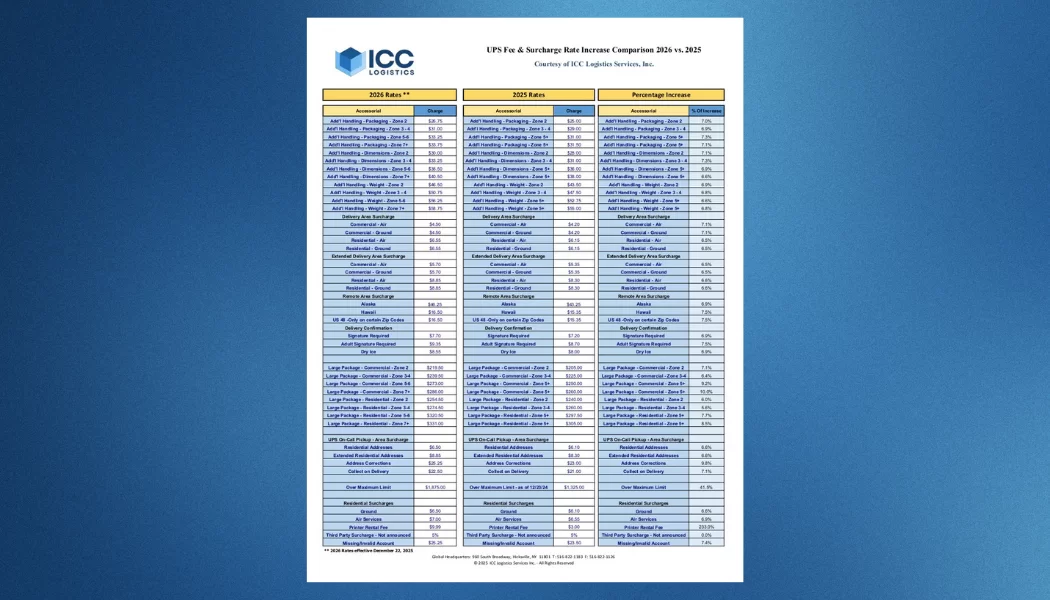Managing shipping costs remains one of the most persistent challenges for supply chain leaders, CFOs, and logistics managers. What may initially appear to be a competitive carrier agreement often carries hidden costs beneath the surface. Minimum charges, opaque surcharge structures, and ambiguous terms gradually erode margins, often unnoticed until expenses spiral. The good news is that strategic Carrier Contract Negotiation can curb these costs significantly without compromising service quality or straining long-term carrier relationships.
At ICC Logistics, we bring more than 50 years of deep industry experience in logistics consulting, auditing, and contract negotiations. Over decades, we’ve witnessed firsthand how even minor changes to carrier contracts can unlock millions in savings while simultaneously reinforcing healthy partnerships with industry giants such as UPS, FedEx, DHL, and key freight providers.
Why Carrier Contracts Cost More Than Many Realize
Carrier agreements are rarely as straightforward as simply offering “discounted” shipping rates. A lack of visibility into contract fine print leaves many companies paying more than necessary. Frequent cost traps include:
- Minimum charges that cancel out savings on lightweight or local shipments.
- Volume thresholds that penalize shippers failing to meet ambitious commitments during economic downturns or seasonal fluctuations.
- Complex surcharge models involving fuel adjustments, residential fees, weekend delivery surcharges, and expansive delivery area charges that often rise automatically year after year.
- Penalty clauses that restrict shipper flexibility and inflate transportation spend during peak seasons or supply chain disruptions.
Another significant challenge is benchmarking. Many shippers lack access to true market comparisons, making it difficult to assess whether their contracted rates are competitive for their actual shipping mix. As a result, businesses frequently accept rate structures that look favorable in isolation but are misaligned with their unique shipping profiles.
How Data Transforms Contract Negotiation
Effective negotiations are not about aggressive standoffs; they are about creating agreements grounded in accurate operational realities. The contract should accurately reflect a company’s actual shipment data, broken down across critical dimensions such as:
- Mode: parcel, LTL (less-than-truckload), FTL (full truckload), or international freight.
- Weight and zone analytics: aligning price tiers with historical averages, avoiding inflated brackets.
- Service-level mix: balancing ground, expedited, and international shipments within the pricing model.
At ICC Logistics, we systematically use invoice audit data and benchmark comparisons to uncover mismatches between contracted charges and actual usage. This turns negotiations from headline discount chasing into objective discussions focused on value, compliance, and long-term sustainability. Instead of negotiating on carrier terms, businesses negotiate based on factual shipment realities.
Reducing Costs Without Switching Carriers
One of the most common misconceptions is that meaningful cost reductions require moving to a new carrier. In reality, most companies achieve significant savings by staying with their current providers. Carriers value customer loyalty and operational continuity, but they also expect professional, data-informed discussions when renegotiating terms.
By re-aligning contracts based on accurate shipping profiles, ICC Logistics frequently enables companies to achieve 20% or greater reductions in overall shipping spend — all without disrupting their daily operations or damaging relationships with incumbent carriers. Key strategies include eliminating burdensome minimums, redefining accessorial rules, and negotiating rebate programs that are both achievable and financially meaningful.
What Good Contract Negotiation Looks Like
A “good” contract is not defined by the broadest discount percentage, but by clarity, alignment, and enforceability. Strong agreements embody these qualities:
- Custom rate structures based on actual shipping data, not generic national scales.
- Transparent handling of accessorial fees, preventing surcharges from escalating unchecked.
- Ongoing compliance monitoring that ensures carriers adhere to published terms post-signature.
- Mutually beneficial incentives that reward performance for both shipper and carrier.
This structured, fair approach ensures organizations can achieve sustainable savings while safeguarding operational resilience and control over transportation spend.
ICC’s Proven Approach to Carrier Contract Negotiation
ICC’s structured methodology goes far beyond the initial negotiation process. By leveraging half a century of expertise, we guide clients through a repeatable framework designed for maximum impact:
- Audit invoices: uncover billing errors, late refund eligibility, and cost-driving inefficiencies.
- Benchmark contracts: compare current rates across parcel, freight, and international benchmarks to highlight disparities.
- Develop negotiation strategies: create data-driven proposals designed to enhance carrier relationships while eliminating financial waste.
- Monitor compliance: hold carriers accountable after contracts are finalized, ensuring measurable savings are realized.
The outcome is consistent: measurable cost savings, long-term resilience, and zero compromise on customer service levels or delivery performance.
Frequently Asked Questions
How does carrier contract negotiation reduce shipping spend?
By aligning your carrier’s rate structures with your real shipment behavior, negotiation eliminates arbitrary costs and ensures you only pay for services you actively use.
Can I lower transportation costs without switching carriers?
Absolutely. In fact, most organizations secure significant savings with their current carriers when leveraging precise data and competitive benchmarks.
What’s the process for negotiating better freight terms?
The process begins with a comprehensive audit of invoices, followed by benchmarking against market standards, then targeting misaligned contract drivers such as unrealistic rebates, minimum charges, or stringently defined surcharges.
How do companies improve service levels while cutting costs?
By structuring renegotiated contracts around actual shipment realities, companies often gain consistency, improved visibility, and better carrier performance guarantees — all while lowering spend.
A Smarter Approach to Carrier Relationships
Carrier contract negotiation is not about squeezing as much out of carriers as possible; it is about aligning agreements with reality. When done effectively, this process creates mutual advantage: shippers reduce wasteful spend, while carriers secure predictable, transparent partnerships.
At ICC Logistics, our consulting expertise and benchmarking tools empower executives, supply chain leaders, and logistics teams to negotiate with confidence. With decades of proven results spanning parcel, LTL, FTL, and global freight, our methodology ensures savings are not just achieved but sustained.
If lowering costs without compromising service is a business priority, the most impactful first step is to assess current contracts through the lens of actual shipment data. More often than not, untapped value is waiting to be discovered.
Suggested Reading:
- Parcel Auditing vs Freight Auditing: What’s the Difference?
- Understanding Surcharge Recovery and Hidden Fees in Shipping
- Benchmarking For Logistics Contracts: How Data Creates Carrier Negotiation Leverage
- Stay Ahead of the Latest UPS & FedEx Rate Hikes
- How to Stop Carriers from Taking Back Your Parcel Discounts



 to receive our FREE white papers:
to receive our FREE white papers: